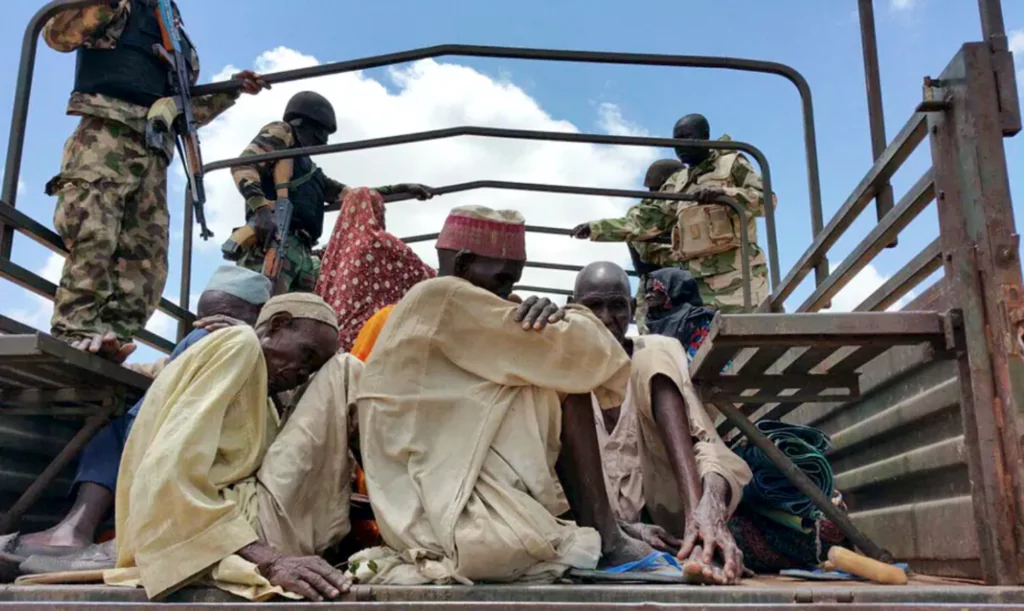THE Nigerian Armed Forces have firmly distanced themselves from allegations that they provide financial incentives to armed bandits, insisting that no payment of ransom or monthly allowance forms part of their counter-insurgency strategy.
The Chief of Defence Operations, Major General Emeka Onumajuru, made this clarification on Tuesday during an appearance on Sunrise Daily, a Channels Television programme monitored by News Point Nigeria.
He stressed that experience had shown that paying money to criminal groups only emboldens them rather than curtailing their activities.
“The armed forces of Nigeria do not support the payment of money to criminal groups. We are not part of any such arrangement,” Onumajuru said.
Onumajuru explained that instead of rewarding criminality, the military runs a national Disarmament, Demobilisation and Reintegration (DDR) programme, in collaboration with the Ministry of Justice and the Office of the National Security Adviser (ONSA).
The DDR programme, anchored around Operation Safe Corridor in Gombe State (North-East) and Zamfara State (North-West), is designed to rehabilitate repentant insurgents and forcibly conscripted individuals who voluntarily surrender their weapons.
“Once weapons are surrendered, individuals undergo a thorough profiling to determine their culpability. Those found guilty face the law, while others particularly those conscripted against their will are transferred to DDR centres for rehabilitation,” he explained.
He emphasised that the DDR framework is not a free pass for criminals but a structured system that balances justice with opportunities for reintegration.
The clarification comes after a former Governor of Kaduna State, Nasir El-Rufai, alleged on Sunday that the Federal Government had adopted what he called a “kiss-the-bandits policy”, which involves paying allowances and sending food to terrorists under the guise of non-kinetic measures.
“What I will not do is to pay bandits, give them a monthly allowance, or send food to them in the name of non-kinetic measures. It’s nonsense; we’re empowering bandits. This is a national policy driven by the Office of the National Security Adviser, and Kaduna is part of it,” El-Rufai said on Sunday Politics.
He faulted what he described as a rehabilitation-oriented policy, insisting that it undermines justice and worsens insecurity.
In response, the Office of the National Security Adviser (ONSA) swiftly dismissed El-Rufai’s allegations, describing them as false and baseless.
A statement signed by Zakari Mijinyawa, spokesperson for the ONSA, said at no point had the government under the current administration engaged in ransom payments or inducements to criminals.
“El-Rufai’s allegations are not only false but contradict verifiable facts on the ground. On the contrary, we have consistently warned Nigerians against paying ransom to criminal elements,” the statement read.
Major General Onumajuru also highlighted the importance of community engagement in border security, saying that local populations must feel a sense of responsibility and belonging in order to help safeguard Nigeria’s porous frontiers.







